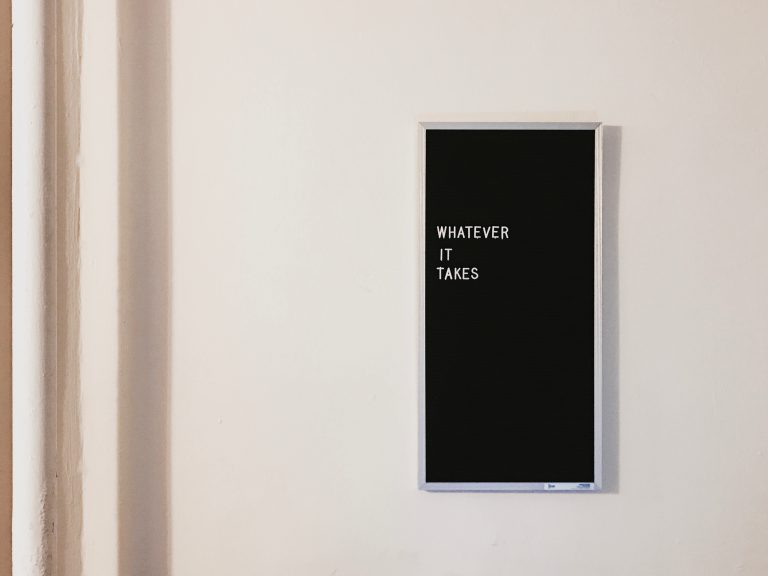Before a lender offers you a loan or line of credit, that lender wants to know the answer to one very important question:
If I loan money to this person, how likely is it that this person will pay me back?
Lenders use credit reports and credit scores to determine how risky it might be to loan money to a prospective borrower.
Your credit rating determines whether lenders will be willing to work with you, and how much it’ll cost you to borrow money. Unless you intend to pay for your future home with cash you’ve been stashing in your mattress, understanding how credit works is essential to your financial well-being. (Editor’s note: you should definitely not be keeping large sums of cash in your mattress.)
In this guide, we’ll cover credit basics: how credit reports work, building and protecting your credit scores, and how make sure that your credit is setting you up for your best financial future.
Credit Reporting Agencies
In the United States, consumer financial activity is tracked by three credit reporting agencies: Experian, Equifax, and TransUnion.
Because there are three separate companies, just about everyone has three credit reports—one at each of the three credit reporting bureaus.
(Technically, you could have less than three credit reports. Young people with limited credit histories, recent immigrants, and off-the-grid types committed to the notion that cash is king may not have files at all three credit reporting agencies. But the credit reporting agencies work pretty hard to try to collect information about everyone. Most people have credit histories on file with all three.)
Your credit reports should be basically the same from each of the credit reporting agencies. But should be is not the same as will be, of course. Often there are differences from one credit reporting agency to the next.
Requesting Copies of Your Credit Reports
If you are considering purchasing a home in the near-ish future, or even if you just want to get a handle on actively managing your credit, your first step is to get a copy of your credit report from each of the three credit reporting agencies.
By law, you’re entitled to one free copy of your credit report per agency per year. You can request your reports from all three credit reporting outfits at the same time, or stagger your requests throughout the year.
The simplest way to obtain your credit reports is to head to AnnualCreditReport.com and request one through there. (Eagle-eyed readers will notice that that’s not a .gov web address. But that is the official site contracted by the FTC for handling credit report requests from American consumers.)
What’s On Your Credit Report?
On your credit report, you’ll find:
Personal Identifying Information
At a minimum, your report should have your full name, your address, your social security or taxpayer identification number, and your date of birth. It’ll probably have previous addresses listed as well.
Credit and Payment History
This is the meat-and-potatoes portion of your credit report. Here, you should find:
- Any Open Loans – If you’ve got student loans, an existing mortgage, a car note, or a personal loan, you’ll see them here. Your credit report will note who you owe. It’ll show how much you borrowed, when you borrowed it, how much you still owe, and how many more payments you’re set to make before you’ve paid the loan off completely. You should also see your payment history, including whether you’ve paid your bills on time. If your payments lapsed for any reason in the last seven years, your credit report will note how long you went without paying.
- Open Revolving Credit Accounts – For credit cards and other revolving lines of credit, your credit report will show the company that’s extending you credit, when you opened that account, your maximum credit limit, how high you’ve ever let the balance go, and the current balance on your account the last time the credit card company reported it to the credit reporting bureau. It’ll also show the minimum monthly payment to cover your current balance. And with that, a payment history showing if and whether you’ve paid your credit card bills on time.
- Any Closed Accounts – Even if you’ve paid off a loan completely or closed a credit card, the information from that account will remain on your credit report for seven years.
Collections
If something happened and you’ve got bills that have gone to collections agencies, those will show up here, too. Collections show up on your credit report even if the original bill did not. So for example, hospitals don’t usually report to credit reporting agencies about paid medical bills. But if you’ve got hefty unpaid medical bills and the hospital sends those to a collection agency? That collections account will likely show up on your credit report.
Credit Inquiries
When you apply for a line of credit, the lender or credit card company will request access to your credit report before making a decision about whether to grant you credit. Each time a company asks one of the credit reporting agencies to see your personal credit report, the credit reporting agency makes a note of it. Those inquiries remain as part of your credit report for a few years. It’s worth noting that the credit inquiries stay on your credit report whether or not you were actually granted the credit you asked for.
Public Records
Parking tickets do not show up on your credit report. But bankruptcies, liens, and other matters of of public record relating to your finances do. If you’ve been to court for a financial matter recently, you can expect to find that information listed on your credit report. (Generally speaking, divorces only show up if the divorce decree includes orders for alimony, child support, or other court-ordered financial obligations.)
What to Look For On Your Own Credit Report
If you print out your credit report in it’s entirety, you could be looking at pages and pages of material. To cut through some of the tedium, remember: when checking on your own credit, you are primarily concerned with accuracy.
Is your personal information correct? Is that your social security number? Have you really lived at all those addresses? Checking the small details is important, especially if you’ve got a common name. There might be 27 Matthew Smiths in the the great state of Oregon. Three of them might also live in Seattle. If one of them isn’t great about paying his bills, and the credit reporting bureau makes a mistake, you could be dinged for financial problems that aren’t actually yours.
Do you recognize all of the accounts on your credit report? Look carefully at each company your credit report claims you’ve done business with over the years. Do they look familiar? Do you know or remember having these accounts? A company name you don’t recognize is probably fine—as long you do recognize the debt. (Perhaps your student loan servicer changed a few years back. Maybe your original lender merged with another company.)
Does your payment history look right? Have you been good about paying your bills on time each month? Your credit report should reflect that.
What If Something Isn’t Right?
Mistakes happen. If you spot an error or inaccuracy, dispute it with the credit reporting agency. If necessary, you can dispute errors with the original creditor, too. Disputes are much less of a hassle than they used to be, but they may take some time to be resolved.
That’s why it’s extra important to check on your credit reports well before you need to apply for serious credit, like a mortgage.
If you see a loan or credit line listed that you don’t recognize at all—perhaps you see a mortgage lender but don’t yet own a home—you may be the victim of identity theft. It happens. If it happens to you, don’t panic. Take a deep breath. Then, dispute the errors with the credit reporting company immediately.
Credit Scores
If you get a copy of your credit report for free, you’ll probably notice right away that your credit report seems to be missing one key piece of information: your credit score.
Credit scores are calculated based on the information on your credit report. But your free, government-mandated credit report won’t list your credit score directly.
Why Do Lenders Use Credit Scores?
It can be tedious for an actual human person to sort through all of the information on a credit report. And not all information on your credit report is weighed equally when it comes to predicting whether or not loaning you money would be an acceptable risk to a lender.
To get around some of the complexity of reading through credit reports line by line, and to make lending more fair, lenders and credit-granting companies rely on credit scores.
How Do Credit Scores Work?
Your credit score is a three-digit number between 300 and about 850. It provides a kind of short-hand, numerical indicator of how reliable you might be as a borrower, based on the information in your credit report. The higher your credit score, the lower the determined risk to a potential lender.
Perhaps surprisingly, Experian, Equifax, and TransUnion don’t actually calculate your credit scores themselves.
Instead, companies that specialize in assessing credit risk develop complex algorithms to generate credit scores for lenders. Then those companies sell access to those scoring models to lenders. FICO scores are the most commonly used by mortgage lenders, banks, and credit card companies making decisions about potential borrowers. But there are other scoring models from other companies.
What’s a Good Credit Score?
Generally, people with credit scores over about 740 get the best rates and the most options for credit cards and mortgages. Having a score in the 700s is usually good enough for most lenders. Some lenders will work with folks whose credit scores are in the 600s.A
| Score Range | What This Means |
|---|---|
| 800+ | A score above 800 puts you in the top 20% of all borrowers. |
| 740-799 | A score over 740 puts you in the top 40% of so of all borrowers. |
| 670-739 | The average credit score in the US is 695. |
| 580-669 | Below average, though some lenders will work with borrowers in this range. |
| 300-579 | Well below the US average: these scores show lenders that you are a risky borrower. |
How Are Credit Scores Calculated?
The actual specifics of how each credit reporting bureau calculates your credit score is a closely guarded secret. After all, credit reporting bureaus want folks to pay for access to those scores. So the credit reporting companies are pretty tight-lipped about their exact methodologies.
Still, credit scores are calculated based on the following:
Payment history
How often you pay your bills on time every month. From your cell phone and utilities to mortgages and car payments, making sure you don’t miss your deadlines is a critical part of keeping a healthy credit score.
Length of credit
How long you have had an open account is also a big factor. You’ve managed to keep an account for several years without going into delinquency? That shows that you’re less likely to be a risky borrower.
Types of credit
Diversity is key. Having a few different types of credit shows potential lenders that you are able to handle more than one thing at a time.
Credit usage
The general rule is not to use more than 30% of your credit. This isn’t just because it’s a bad idea to overspend. It shows that you’re able to earn enough to not have to rely on credit for basics.
Recent inquiries
Thinking about applying for a few credit cards before you go out and purchase a car? Think again. When you apply for a student loan, car loan, or credit card, lenders will do a ‘hard pull’ on your credit. This means that the act of them finding out your credit information causes your credit to take a hit. Too many of these inquiries and you could find yourself just shy of qualifying for things you otherwise would have.
How Do I See My Credit Scores?
Fun fact: until just a few years ago, consumers didn’t actually have access to their real credit scores (or at least, not until they were in the middle of applying for actual credit).
But today, you can check on your credit scores a number of ways.
You can pay for access to your FICO credit scores. MyFICO.com offers access to your credit scores, using the exact same scoring algorithms that lenders use. The downside? Just like the lenders who pay FICO to calculate a credit score for you, you can’t see your scores here for free.
You can get a free score from your bank, credit card company, or from a credit monitoring service. Many financial services provides offer access to free credit scores. These free scores can be great for getting a general idea of where your credit score stands, but be careful. Most of the credit scoring models used for free credit scores are not the same as the ones that will be used when it’s time for a lender to make a decision.
Building Credit When You Have No Credit
Just getting started? In the modern world, demonstrating creditworthiness means having a positive credit history and a decent credit score. Here are a few tried-and-true methods of establishing credit.
Get a Secured Credit Card
A secured credit card is an option for just about everyone. With a secured credit card, you, the borrower, pay the creditor a deposit in order to be approved. The deposit protects the credit card company in the event that you don’t pay your credit card bill. Usually, your spending limit on a secured credit card is the amount of your deposit. (Usually, but not always: remember to check the terms).
Just like a regular credit card, you’ll receive a bill each month for the charges you’ve made to the card. You’ll need to pay at least a minimum payment each month. And if you carry a balance, you’ll accrue interest, even though the secured card company has your deposit.
If you need to prove you can handle a credit card, a secured card can be a good way to do it. Most folks only keep a secured card for a year or two before graduating to an unsecured line of credit. (Some secured credit card companies will convert your account to an unsecured line automatically after a period of regular, on-time payments.)
Get a Store Card
Generally speaking, cards administered through retail stores have lower credit requirements than cards administered through major credit card lenders. Plus, they can be good for discounts at stores where you’re already shopping.
If you’re trying to establish credit, you might consider trying a store card or two from your favorite stores. Be careful with this option: not all store cards report good behavior to the credit bureaus, and store cards often carry high interest rates. So if you want to use a store card to help establish good credit, check to make sure the card reports to the credit bureaus first. Still, you may have luck getting a credit card at the mall, even if you haven’t had luck getting one at the bank.
Become an Authorized User on Someone Else’s Credit Account
Does someone with excellent credit love and trust you? If so, consider asking if they’d be willing to add you as an authorized user on one of their credit cards. Just like a credit card or loan in your own name, the payment history and activity of any credit account on which you are an authorized user is reported to the credit reporting agencies. That means being an authorized user on another person’s credit card can help you establish ‘your’ credit history right away.
If you go this route, make sure the person adding you pays their bills on time each month. A missed payment on their part will hurt both of you.
Similarly, if you’re an authorized user, don’t run up the bill without communicating with the primary account holder. You’ll both be on the hook for any charges. (Fun fact: the primary account holder can add an authorized user without actually giving that user a credit card for that account. So if your mom’s concerned that you could tarnish her sterling credit record if she adds you to her account? Feel free to let her know that she could add you as an authorized user without giving you a card.)
Maintaining and Improving Good Credit
Folks with the best credit scores get the best interest rates on their mortgages. People with low scores have trouble finding mortgage lenders—and those that do, pay more.
So, if you’re looking to buy a home soon, safeguarding your credit score is absolutely critical. Not sure how to protect your credit score? Here’s what you need to do.
Pay Your Bills On Time
For lenders, a missed payment is a serious red flag. Credit scores—especially good credit scores—change significantly with missed payments and delinquent accounts. A credit score in the high 700s can drop by nearly 100 points if a single account is marked as 30-days past due. So make doubly sure you dot your i’s and cross your t’s. Get those monthly checks out to pay all of you bills on time.
Keep Your Oldest Accounts Open
The total amount of all of the credit available to you is a factor in your credit score. So is the average age of your existing credit accounts.
From a practical standpoint, that means that while you may not be using that line of credit you got from Macy’s a decade ago, keeping the account open is probably helping your credit score.
If you’ve got old accounts with $0 balances, leave them open for now. You can do some credit housekeeping and close unused accounts after you’ve finalized your mortgage.
Pay Down Some Debt
The quickest way to increase your credit score is to pay down existing debt (if you can). Ideally, your revolving credit card debt should be less than 30% of the credit limits on all of your credit cards. Getting your debt to less than 10% of your credit limits is even better.
If you’ve got the means and just a little bit of time, lowering the amount of debt you carry can seriously improve your credit score. And by lowering your monthly repayment obligations, you can help your chances of being approved for a mortgage by carrying less non-mortgage debt.
Protecting Your Credit Score While Homebuying
Only have a little bit of time before you intend to buy a home? Then your primary goal should be to protect your credit score from any sudden, significant drops.
Avoid Making Major Purchases
Mortgage lenders generally want to see that your monthly debt obligations—including your new mortgage—will be less than 43% of your monthly income.
Major purchases on your existing credit cards can increase the amount you’re obligated to pay each month.
If you suddenly add, say, a new car payment to the mix, or dramatically increase the monthly minimums you need to pay on your existing credit cards because you spent thousands of dollars on new furniture for your new place?
You could risk jeopardizing your mortgage approval. (And then where will you put that new dining room set?)
Don’t Open Any New Lines of Credit
It can be very, very tempting to apply for new credit cards as you’re shopping for a home. After all, you might some new stuff to put in that new home you’re about to buy.
Or perhaps you find yourself suddenly interested in a line of credit at the local home improvement store. You’ll be a homeowner and not just a renter soon.
But if you want to safeguard your current credit score, resist the urge to apply for new lines of credit. Too many hard inquiries can make mortgage lenders wary, and hard inquiries lower your credit score.







